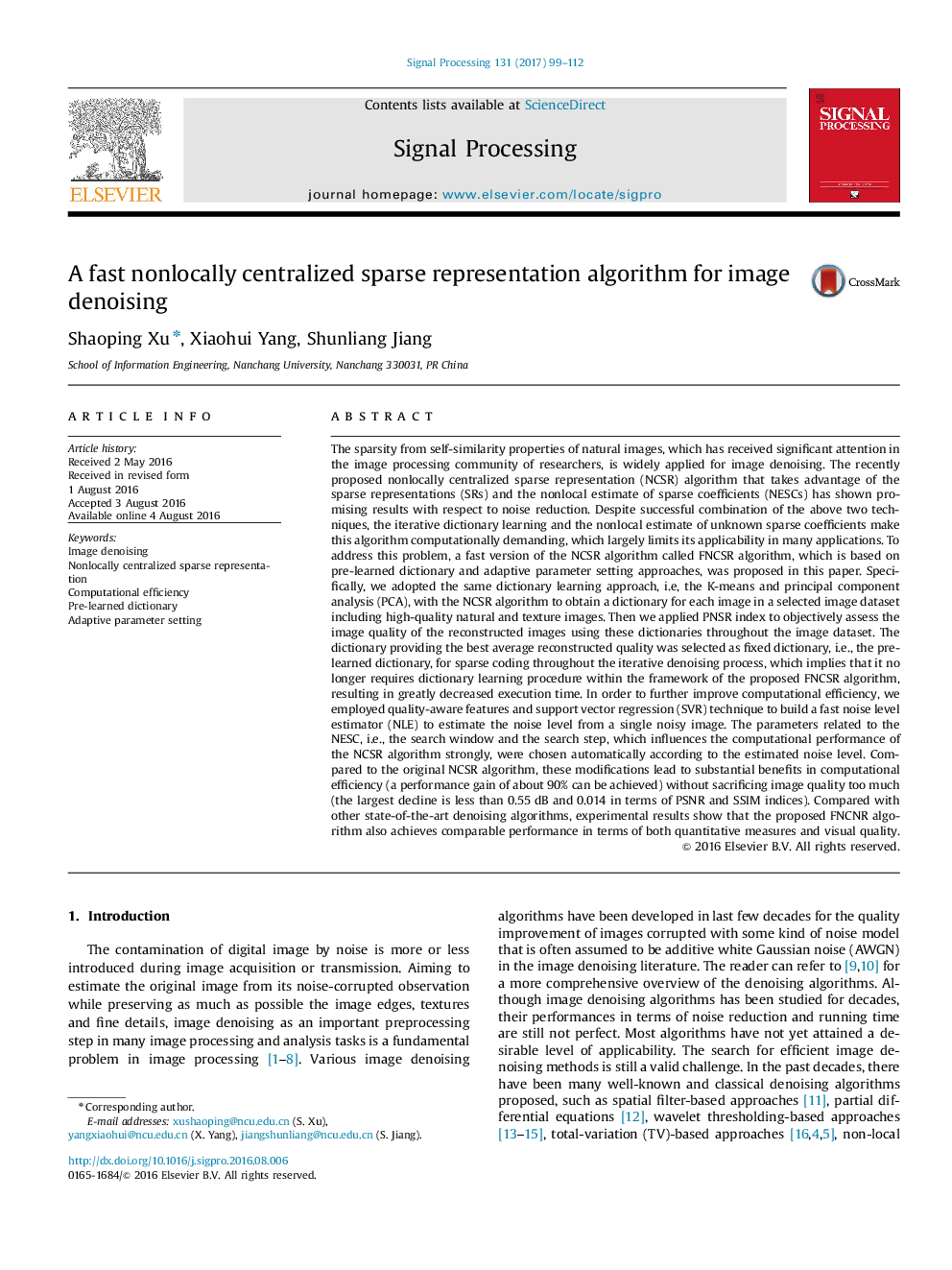ترجمه فارسی عنوان مقاله
یک الگوریتم ارائه سریع ناکافی متمرکز برای انهدام تصویر
عنوان انگلیسی
A fast nonlocally centralized sparse representation algorithm for image denoising
| کد مقاله | سال انتشار | تعداد صفحات مقاله انگلیسی |
|---|---|---|
| 150470 | 2017 | 14 صفحه PDF |
منبع

Publisher : Elsevier - Science Direct (الزویر - ساینس دایرکت)
Journal : Signal Processing, Volume 131, February 2017, Pages 99-112
ترجمه کلمات کلیدی
انهدام تصویر، نمایندگی ناهموار متمرکز غیرمستقیم، کارایی محاسباتی، فرهنگ لغت پیش دبستانی، تنظیم پارامتر انعطاف پذیر،
کلمات کلیدی انگلیسی
Image denoising; Nonlocally centralized sparse representation; Computational efficiency; Pre-learned dictionary; Adaptive parameter setting;

